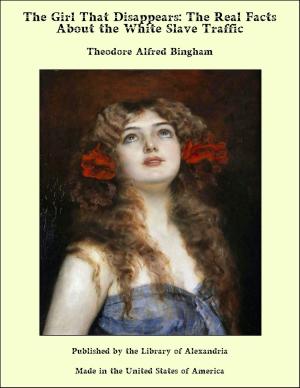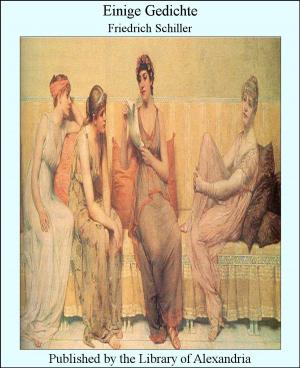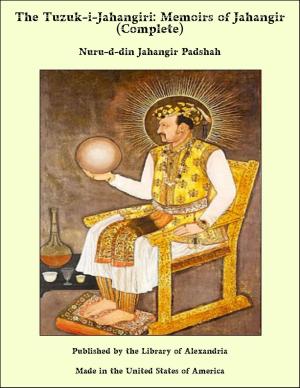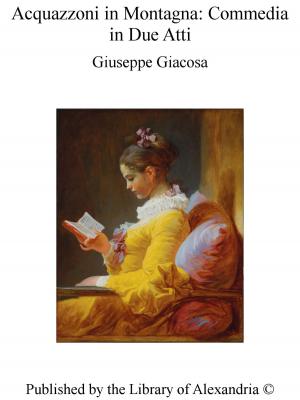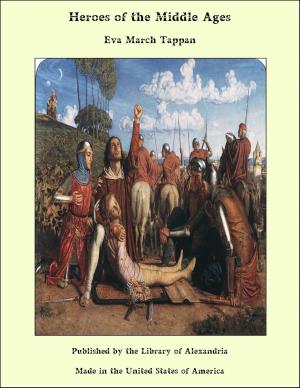Some Longer Elizabethan Poems
Nonfiction, Religion & Spirituality, New Age, History, Fiction & Literature| Author: | Various Authors | ISBN: | 9781465614025 |
| Publisher: | Library of Alexandria | Publication: | March 8, 2015 |
| Imprint: | Language: | English |
| Author: | Various Authors |
| ISBN: | 9781465614025 |
| Publisher: | Library of Alexandria |
| Publication: | March 8, 2015 |
| Imprint: | |
| Language: | English |
As there is no need to adopt a strictly chronological order for the poems included in the present volume, I have begun with theOrchestra and Nosce Teipsum of Sir John Davies (1569-1626), who was undoubtedly one of the most brilliant figures of the Elizabethan Age. Well-born and gently bred, educated at Winchester and at New College, Oxford, Davies was exceptionally fortunate in escaping the pecuniary cares that harassed so many Elizabethan men of letters. From the Middle Temple he was called to the bar in 1595 (at the age of twenty-six). In the previous year Orchestra had been entered in the Stationers' Register, but the poem was first published in 1596. From the dedicatory sonnet to Richard Martin we learn that it was written in fifteen days. There are, however, no signs of haste in the writing, and it may fairly be claimed that this poem in praise of dancing is a graceful monument of ingenious fancy. Lucian composed a valuable and entertaining treatise on dancing, and I suspect that Περ Ορχήσεως gave Davies the idea of writing Orchestra. With this compare Lucian (as Englished by Jasper Mayne): 'First, then, you plainly seem to me not to know that dancing is no new invention or of yesterday's or the other day's growth, or born among our forefathers or their ancestors. But they who most truly derive dancing, say it sprung with the first beginning of the universe, and had a birth equally as ancient as love.' It would be easy to multiply instances. Of course Davies' borrowings from Lucian do not for a moment detract from his poem's merit: indeed they give an added zest. In the 1596 edition Orchestra ends with a compliment to Queen Elizabeth, and stanzas in praise of Spenser, Daniel, and others. Davies had evidently intended to write a sequel; for, when Orchestra was republished in the collective edition of his poems (1622), it was described on the title-page as 'not finished,' some new stanzas were added, and it ended abruptly in the middle of a simile. The poem is quite long enough as we have it in the 1596 edition, and we need not lament that Davies failed to carry out his intention of continuing it: μηδν γαν. To his youthful days belong the Epigrams, which were bound up with Marlowe's translation of Ovid's Amores (with a Middleburgh imprint): occasionally indecorous, they are seldom wanting in wit and pleasantry.
As there is no need to adopt a strictly chronological order for the poems included in the present volume, I have begun with theOrchestra and Nosce Teipsum of Sir John Davies (1569-1626), who was undoubtedly one of the most brilliant figures of the Elizabethan Age. Well-born and gently bred, educated at Winchester and at New College, Oxford, Davies was exceptionally fortunate in escaping the pecuniary cares that harassed so many Elizabethan men of letters. From the Middle Temple he was called to the bar in 1595 (at the age of twenty-six). In the previous year Orchestra had been entered in the Stationers' Register, but the poem was first published in 1596. From the dedicatory sonnet to Richard Martin we learn that it was written in fifteen days. There are, however, no signs of haste in the writing, and it may fairly be claimed that this poem in praise of dancing is a graceful monument of ingenious fancy. Lucian composed a valuable and entertaining treatise on dancing, and I suspect that Περ Ορχήσεως gave Davies the idea of writing Orchestra. With this compare Lucian (as Englished by Jasper Mayne): 'First, then, you plainly seem to me not to know that dancing is no new invention or of yesterday's or the other day's growth, or born among our forefathers or their ancestors. But they who most truly derive dancing, say it sprung with the first beginning of the universe, and had a birth equally as ancient as love.' It would be easy to multiply instances. Of course Davies' borrowings from Lucian do not for a moment detract from his poem's merit: indeed they give an added zest. In the 1596 edition Orchestra ends with a compliment to Queen Elizabeth, and stanzas in praise of Spenser, Daniel, and others. Davies had evidently intended to write a sequel; for, when Orchestra was republished in the collective edition of his poems (1622), it was described on the title-page as 'not finished,' some new stanzas were added, and it ended abruptly in the middle of a simile. The poem is quite long enough as we have it in the 1596 edition, and we need not lament that Davies failed to carry out his intention of continuing it: μηδν γαν. To his youthful days belong the Epigrams, which were bound up with Marlowe's translation of Ovid's Amores (with a Middleburgh imprint): occasionally indecorous, they are seldom wanting in wit and pleasantry.







